You could start losing teeth in your 30s – how to keep the rest of them before it’s too late
Many adults lose anywhere from five to 10 teeth by the time they reach their late 60s or early 70s. But you don’t have to go through your senior years with even fewer teeth if you start caring for them now.
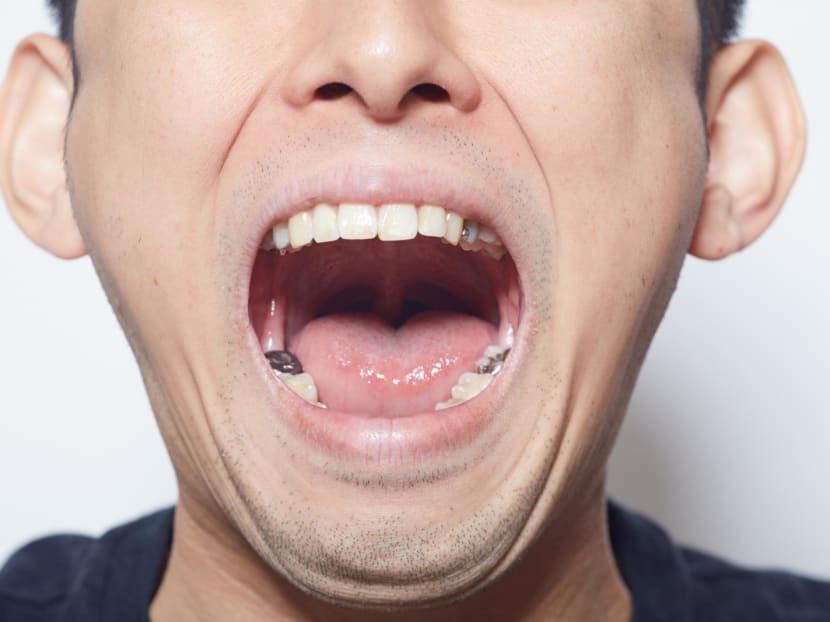
(Photo: iStock/Yuji Karaki)

This audio is generated by an AI tool.
Remember squatting over the drain and brushing your teeth after recess in primary school back in the 80s? And the mixed emotions you’d get when the school’s dental nurse called you out of class? (Yay, you get to skip a period but uh-oh, will there be pain?)
Your dental needs were taken care of back then, but after you’d traded your backpack for a briefcase and entered the workforce, you’re pretty much on your own. And as it turns out, many Singaporeans aren’t taking care of their teeth as well as they should: Only 56 per cent of people aged 55 and above in Singapore have 20 or more natural teeth as opposed to the full set of 32 adult teeth, according to the Ministry of Health.
And it doesn’t help that many Singaporeans with tooth decay opted for the easier and cheaper way out: Extraction rather than a root canal procedure, said Health Minister Ong Ye Kung at the MediSave update announcement a short while back. "We will have fewer and fewer teeth as we grow old if we take this approach. This diminishes our ability to chew effectively and in our old age, affects our nutritional intake," he said.
How can you ensure you won’t be "bo geh" (toothless in Hokkien) or still retain most of your natural teeth when you hit your senior years? We find out from the dental experts.
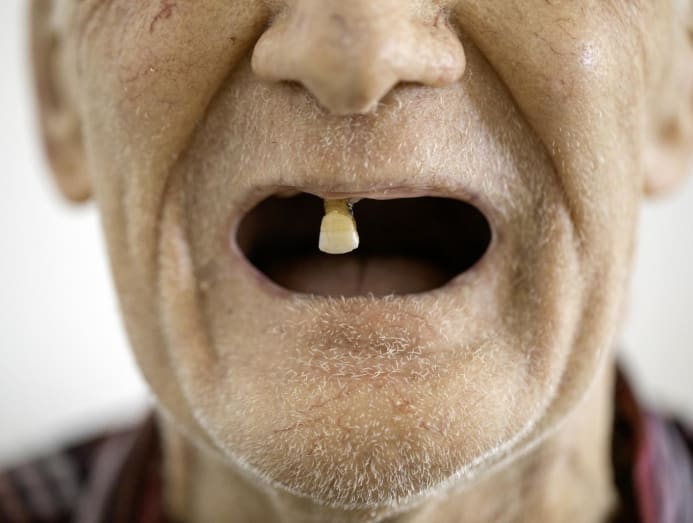
IS GOING TOOTHLESS A NATURAL PART OF GROWING OLDER?
A resounding “no”, said all the doctors that CNA Lifestyle spoke to.
Becoming toothless “is a common misbelief and I understand why many people might think that way, especially since tooth loss becomes more prevalent as people get older”, said Dr Kong Rui Ling, an associate consultant with National Dental Centre Singapore’s Department of Restorative Dentistry, Prosthodontic Unit.
Neglect, rather than age, plays a bigger role in tooth loss, said Dr Wong Li Beng, a senior consultant with Ng Teng Fong General Hospital’s Dentistry department. “We have seen patients with 28 healthy teeth well into their late 80s. Conversely, we have also seen patients in their 20s having fewer than 20 functional teeth due to neglect.”
His colleague, consultant Dr Madeleine Tan, agreed. “You can still have your full complement of teeth in your later years if you take good care of them.”
HOW MANY TEETH CAN YOU EXPECT TO LOSE IN YOUR LIFETIME?
Unfortunately, even with good dental care, “adults can lose anywhere from five to 10 teeth by the time they reach their late 60s or early 70s”, according to Dr Kong. And you'll need to maintain at least 20 natural teeth for effective chewing, she said.
The teeth that you tend to lose are the molars, said Dr Lee Jun Sheng, the founder of Smilee Dental Clinic. “These are the large teeth at the back of the mouth that are responsible for grinding and crushing food.”
Dr Lee explained that there are several reasons for that: Difficulty in cleaning and the pressure they’re subjected to when chewing.
“Molars have more pits and grooves where food particles can get trapped, making them more susceptible to cavities,” he said. “Molars are also considered high-pressure zones as they endure 90 per cent of the chewing force. Heavy usage over the years can lead to cracks, decay and eventual tooth loss.”
Moreover, seniors with reduced dexterity caused by conditions such as rheumatoid arthritis, stroke or Parkinson’s disease may have difficulty cleaning the molars, said Dr Tan. It can also be challenging for caregivers to adequately brush a dependent senior’s molars, she said.
That doesn’t mean the incisors or front teeth are completely spared. “The incisors tend to be preserved longer because they are easier to clean and are less prone to the same issues, though they can still be affected by gum disease or trauma,” said Dr Lee.
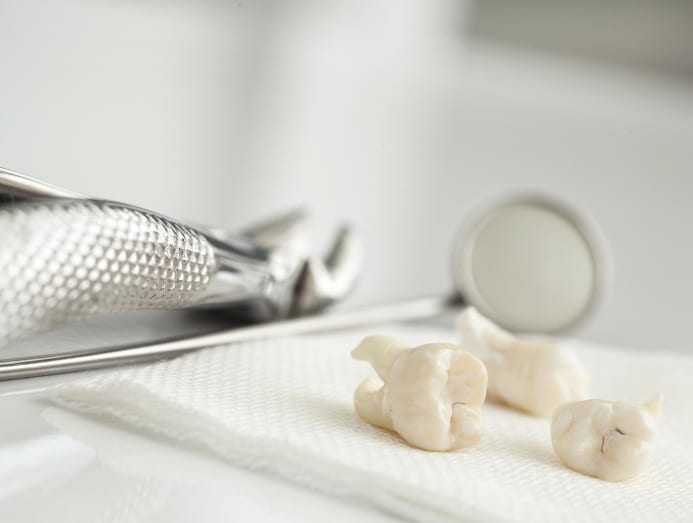
WHEN CAN TOOTH LOSS BEGIN? WHAT ARE THE CAUSES?
It can begin as early as in your late 30s to early 40s, said Dr Kong, particularly if there is dental neglect, poor oral hygiene habits or a genetic predisposition to conditions such as periodontal disease.
“However, most tooth loss happens after age 60 when gum disease, tooth decay and other factors become more pronounced,” he said. “This happens due to changes in oral care habits.”
Here’s a breakdown on the various common causes and how big an impact they have on tooth loss, according to Dr Lee:
1. Cavities: 96 per cent
This is often due to developing a dry mouth and weakened enamel with age, said Dr Lee. “Seniors might not have as much saliva to neutralise the acids in the mouth or help with remineralisation.” They may also be on medications that can cause dry mouth such as some antihypertensives, antihistamines, antidepressants, pain relievers and diuretics, he said.
Dr Kong highlighted that plaque buildup becomes harder to manage when dental visits often decline as people age.
2. Gum recession: 60 to 85 per cent
Long-term gum diseases (gingivitis or periodontitis), poor oral hygiene and ageing are common causes. “When the gums recede, the tooth roots become exposed, which can increase sensitivity and the risk of decay,” said Dr Lee.
3. Poor diet: 30 to 50 per cent
"The typical Singaporean diet has added sugars, which may not be apparent to the older adult, such as 3-in-1 coffee or tea, desserts like cheng tng and ice kachang, herbal teas from traditional medicine halls, kaya, jam, kuehs and Swiss rolls,” said Dr Tan. Even some medicines like the cough drops or throat soothers that they suck on through the day can have added sugars, she said.
“The frequency at which the seniors eat the aforementioned foods also matter,” continued Dr Tan. “Continuously snacking or sipping small quantities throughout the day is detrimental as the teeth are always coated with sugars. I usually advise my patients to limit their sweet treats, and to have them at mealtimes, rather than frequently grazing on the treats in-between meals.”
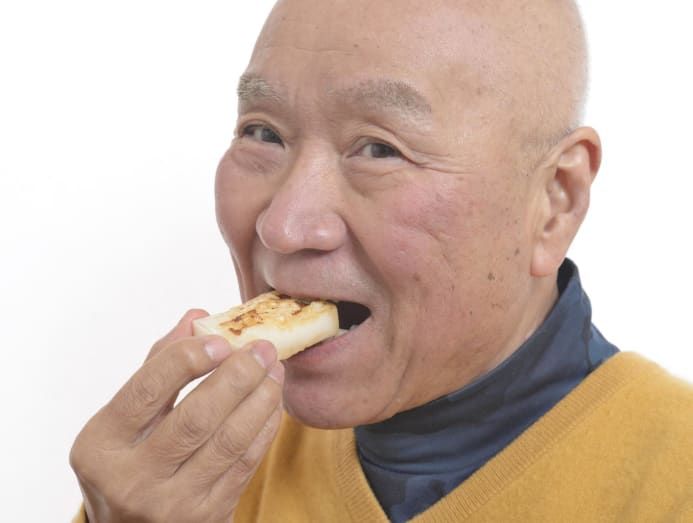
4. Enamel wearing down: 25 per cent
This is due to the long-term exposure to the acids in foods and drinks as well as from the normal wearing down caused by chewing, said Dr Lee.
5. Smoking: 9 per cent
“Smoking reduces blood flow to the gums, and weakens the body’s ability to fight infections and heal from injuries. It also contributes to gum disease and can stain teeth,” said Dr Lee.
WHAT OTHER HABITS CAN MAKE OR BREAK SENIORS’ TEETH IN OLD AGE?
Beyond missing regular dental visits and forgoing daily brushing, there are some habits that seniors have in Singapore that can contribute to tooth loss, said Dr Kong.
They include chewing on ice cubes, gnawing on bones, biting crab shells and cracking seeds. “These actions can lead to the wear and tear of their teeth and most commonly, cause fractures and cracks in the long run,” said Dr Kong.
Seniors who wear dentures may also neglect proper care and cleaning, said Dr Lee, which can lead to bacteria and plaque buildup that cause gum irritation, infection and discomfort.
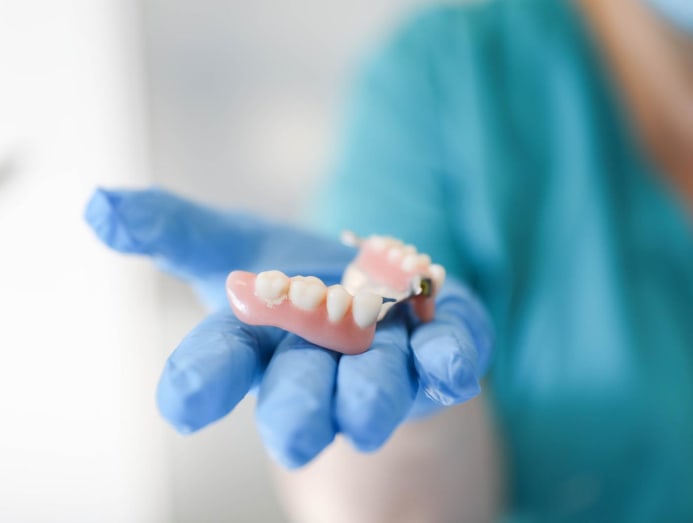
Teeth grinding during sleep can be another issue that bothers seniors due to stress, anxiety or poorly fitted dental work, highlighted Dr Lee. “Some seniors may try to ‘adjust’ their dentures themselves, which can worsen their fit and lead to further oral health issues.”
The use of traditional herbal remedies or home treatments may seem harmless but they may not be effective and instead, damage their teeth, said Dr Lee. “For instance, some herbal or natural remedies could be abrasive or acidic, which further damage the enamel and inadvertently worsen oral health problems such as erosion, sensitivity or bacterial buildup.”
WHAT CAN YOU DO TO BETTER RETAIN YOUR TEETH AS YOU AGE?
“I may sound like a broken record but prevention is always better than cure,” said Dr Wong. “Regular visit to the dentist is highly recommended.”
Those twice-yearly dental visits still apply whether you have fewer or more than 20 teeth, or no teeth at all, said Dr Tan. “Your dentist can help to identify oral problems early.”
She continued: “Oral problems can be treated with relatively simple and minimal procedures. If left untreated, these oral problems can worsen, requiring complex and costly procedures, or even tooth loss”.
In the meantime, Dr Kong recommends the following ways to improve your odds of retaining your pearly whites:
1. Protect your teeth from grinding
If you suspect you are grinding your teeth, especially at night, talk to your dentist about getting a custom-made nightguard.
2. Eat for better dental health
A tooth-strengthening diet includes food rich in calcium, Vitamin D and phosphorus but low on sugar and acid.
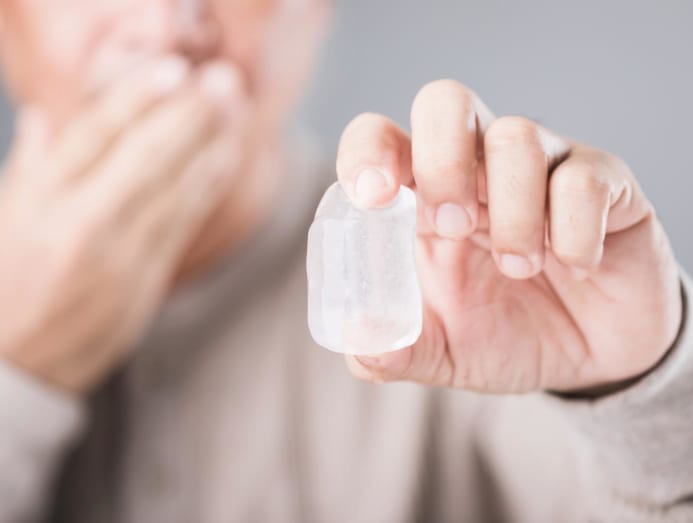
3. Do not abuse your teeth
That means no opening packages and bottles, or biting on hard objects such as pens and hard candy with your teeth.
4. Avoid smoking or using tobacco
Smoking and using tobacco products can cause gum disease, bad breath and oral cancers.
5. Stay hydrated
Saliva plays a crucial role in keeping your mouth healthy by neutralising acids and washing away food particles. Drink plenty of water throughout the day.
6. Be aware of your medications
Some medications, such as antihistamines, antidepressants and painkillers, can lead to dry mouth, which can cause cavities and gum disease over time. If you are on any medications that cause dry mouth, talk to your doctor or dentist.
7. Do regular self-checkups
Look for signs of problems like gum recession, bleeding gums or unusual tooth sensitivity. If you notice any changes, such as pain, swelling or sensitivity, see your dentist as soon as possible.






